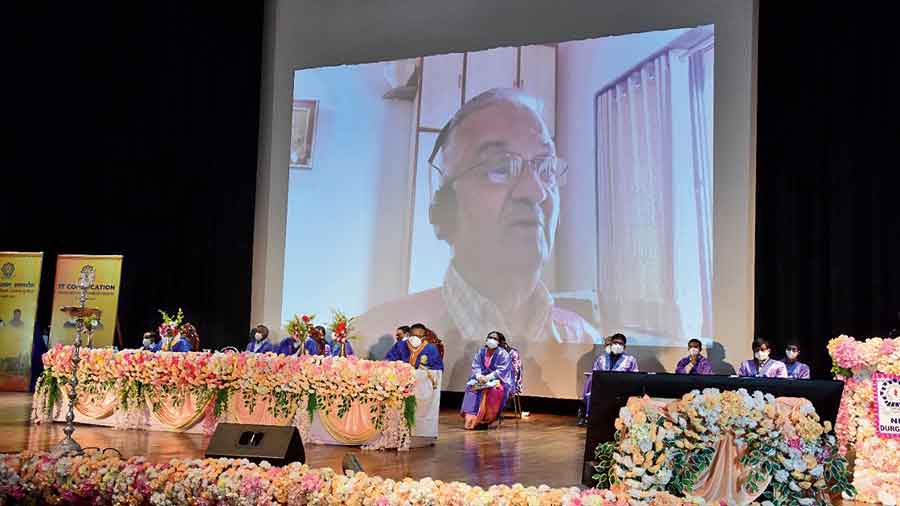Former Atomic Energy Commission chairman Anil Kakodkar on Saturday said there must be an awareness on the “need to quickly bridge growing disparity gaps within the country that are becoming a matter of concern”.
Anil Kakodkar, who is the chancellor of Homi Bhabha National Institute, was the chief guest at the 17th convocation of NIT Durgapur.
In his address Kakodkar said: “As we prepare ourselves to be at the forefront of the emerging high technology... we need to be also aware of the need to quickly bridge growing disparity gaps within the country…. A key aspect is the urban-rural gap. Rural development needs a special focus in this context. Nearly two-thirds of India lives in villages with less than half average per capita income as compared to urban areas.”
Director of NIT Durgapur Anupam Basu said the diversity of India “is our strength and we must harness the potential correctly”.
Kakodkar, also the chairman of the Rajiv Gandhi Science and Technology Commission, added: “Bridging the urban rural divide at least in terms of livelihood opportunities is thus a matter of urgent necessity in our country.”
The Covid-19 pandemic has caused acute rural distress, leading to a sharp increase in demand for work under the NREGA across the country.
Kakodkar said the emerging era of knowledge-driven economy that facilitates democratization and decentralization of technology-led economic activities is a great opportunity for transformation of the rural horizon that could bridge the urban-rural divide.
“The education that we provide to our young should also make them responsible so as to ensure that the use of technology remains non-exploitative….and minimize the disparity gaps that are becoming alarming by the day. This also requires bridging the gaps in key human needs, viz, identity, prosperity and security and usher in peace and harmony,” said Kakodkar.
He said although India has done relatively better in a shorter time in the start-up space, all start-ups cannot be categorized as high-tech start ups.
According to Kakodkar, India needs to ascend on the knowledge based value creation ladder fast.
“An extreme example for us to emulate in this context is Stanford University whose alumni and faculty have created nearly 40,000 companies that generate around USD $ 2.7 trillion in annual revenue. Notice that this number related to a single university is around the size of the Indian economy as a whole,” he said.
In Saturday’s convocation 659 BTech, 224 MTech, 22 MBA, 28 MCA, 48 MSc and 106 PhD degrees were awarded degrees virtually.
Fifteen gold medallists came to the campus to receive the medals.
Purnendu Chatterjee, the founder and chairman of the Chatterjee Group, was the guest of honour and attended the occasion virtually.
NIT director Anupam Basu said in his speech: “The diversity of India is our strength and….. I appeal to you all (students) to be the flag bearers of this intense work.”
